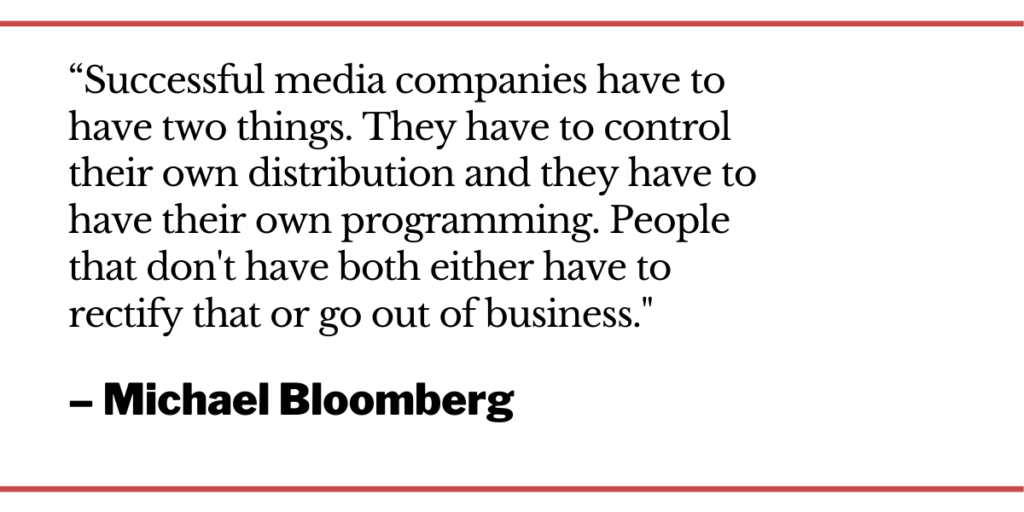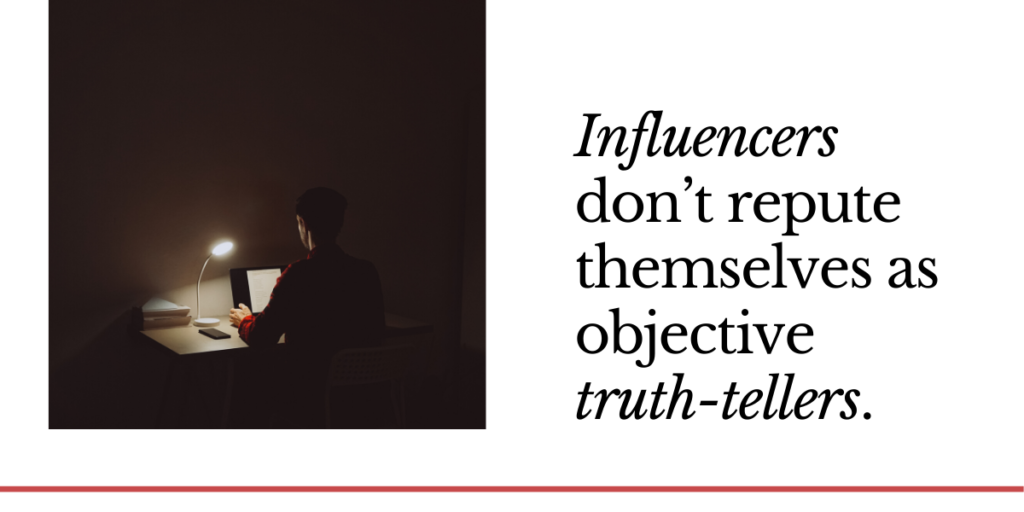The future of B2B media is a topic worthy of a book. It’s a huge industry with a lot of moving parts, but there are a few trends that stand out to me as defining the future of the industry more strongly than any others.
In general, beyond just B2B, the most successful media companies have the full attention and trust of their audience. Regardless of what they promise – information, entertainment, perspective – they thrive when they capture time and attention better than anyone else.
In my last blog on the future of journalism, I dug into the monetization challenges facing online publishers battling the two-headed monster of Big Tech and the COVID pandemic. While I am confident that the best publishers will benefit, emerging from this inflection point stronger than ever, others are at risk of defeat.
As PR and communications professionals, it’s important for us to consider what the future of B2B media looks like, and how the roles and powerful voices within it will evolve over time.
The short answer is, media companies are finding new ways to stay competitive, while individual experts and corporate brands are simultaneously taking on characteristics of media companies to survive and thrive in the attention economy. We see it playing out something like this:
B2B media consolidates
In a market where revenue disappears overnight, only a few players will remain strong—mirroring the media industry at large. We’ll see the most trusted names in each market consolidate their influence by bringing in the lion’s share of the reduced available revenue.
Those who were already struggling will have to close. The big players will capitalize on the opportunity by investing in new services and staff who help them further monetize their attention share. They have the time and resources to wait out the storm.
Publications monetize new services
“Successful media companies have to have two things. They have to control their own distribution and they have to have their own programming. People that don’t have both either have to rectify that or go out of business,” said Michael Bloomberg, as shared in a great Twitter thread on Bloomberg’s experience.

With big tech platforms like Facebook and Google taking a larger role in distributing the media’s content, publications must quickly build out their own distribution methods. They need to shift from relying on search and social to reaching their own audiences where they are.
We talk about it all the time with our retail tech clients – retailers must be everywhere their shoppers are. It’s no different in media.
In terms of programming, we’re already seeing the most well-respected B2B publications scale services well beyond online and print articles. They host webinars, conduct sponsored research, curate multiple regular newsletters, create video, run conferences (and will find ways to take leadership roles in virtual events), award programs, and more. Those who continue this content mix and find ways to own the distribution will come out on top.
Independent experts change the game
Adding new services that go well beyond reporting the news isn’t the only reason the definition of ‘media company’ is changing.
New content creators are entering the mix, often without affiliation to any media brand. They’re not in it to compete for ad dollars; their currency is attention. They might be company executives, consultants, investors, academics or industry analysts. As long as they have deep expertise and a platform to share thoughts, they can play the game.
These high-relevance industry experts and brands are the thought leaders and entertainers that news organizations can never be. They can take positions that exist outside of pure fact; they can challenge conventional knowledge and accumulate loyal followers.
Social platforms like Twitter, LinkedIn and YouTube have given SMEs free platforms to become the go-to experts in any domain. They provide a “boots on the ground” sense of reporting objective truth.

What’s more, these influencers don’t repute themselves as objective truth-tellers. That makes it easy for them to say what they think and use personality and entertainment to elevate their spot in the intellectual hierarchy.
These SMEs will challenge publications for the title of the most reliable and influential voices in the industry. As they do, they will continue to monetize their position. They will offer their own secondary services – selling products, services or time without the overhead or scrutiny that media companies deal with. As this proves an increasingly powerful sales tool, more players will enter the field.
Corporate brands double down on ‘content marketing’
The industry’s savviest entities won’t be left behind in this paradigm, either.
Digitally intelligent and highly engaging brand “publications” will increasingly become entertainment hubs for their industries. This will take the form of both robust blogs and brand-agnostic, semi-independent media entities.

Without the need to supplement content with advertising revenue, they will build platforms that offer cutting-edge storytelling experiences.
Funded by corporate profits, they can invest heavily in being at the forefront of every industry conversation. Eventually, corporate profits will help them be among the first to deploy new storytelling technologies such as augmented or virtual reality, or 360-degree video.
In the attention economy, pervasive brand awareness and affinity leads to sales of their core product or service offering. Their media platform can operate at a net-negative cost and still drive significant gains in corporate profit.
Communications professionals take control of audience engagement
Every company today, in some way, is (or should be) a media company. Everyone has an online presence, competes for views and attention, and wants to be a key voice in their industry.
As B2B media, corporate, and individual players compete for attention, they’ll overlap and collaborate more; we’ll continue to see the splintering of long-held industry roles.
But we can’t just wait and see how the future of B2B media affects our approach to brand building. The new market context demands that we also take control of our own content creation and distribution. We all need to be media companies now.
Do you want to propel your company’s growth by adopting a media company mindset, but don’t know where to start?
We’re offering a free 30-minute conversation to help get you started. We’d love to brainstorm with you! Just get in touch.

